Many oil and gas projects in Africa have experienced force majeure or delays across the upstream and midstream sectors on account of the COVID-19 pandemic. The pandemic has also sped up the transition to renewable energy as oil majors and legacy energy companies increasingly set targets and explore money-backed strategies to reduce hydrocarbons by 2030.
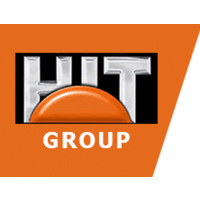
Despite this, oil and gas exploration and development will remain critical for decades to come in order to meet demand. Analysis from Wood MacKenzie indicates, “Only about half the supply needed to 2040 is guaranteed from fields already onstream. The rest requires new capital investment and is up for grabs.” Their data shows that global demand for oil and gas over the next 20 years will be 1,100 – 1,400 billion barrel of oil equivalent (boe), leaving a supply gap of 460 – 760 billion boe.
Furthermore, the oil and gas industry remains the backbone of Africa’s oil-producing countries. Crude oil exports constitute a large portion of revenue in countries including Nigeria, Angola, and Algeria. In Ghana, the petroleum sector has in recent years experienced significant growth and the prospects remain significant given its established upstream track record, attractive licensing terms and political stability. The mining sector is equally important in Ghana, as it contributes 37% of export revenues and 19% of direct tax payments.
African governments’ enforcement of local content and localisation compliance for supply chain development, capacity building, and human growth capital has become even more important as a means of sustainable cost-reduction for international companies amid the pandemic. In August 2020, about seven years after Ghana’s local content law was passed, the Petroleum Committee initiated the process of reviewing local content regulations on the upstream oil sector. The review is part of an effort to deepen local content and participation, and ensure that the provisions are responsive to industry trends and demands.
Harlequin Group, an indigenous fabrication, general engineering and hydraulic company based in Ghana believes there is much scope for international partnerships to harness the region’s oil, gas and mining industries for inclusive growth, as the world recovers.
Loading...
Harlequin is run by Executive Directors (and brothers) Frederick and Daniel Hesse-Tetteh. They acquired the company in 2018 after divesting equity in their family’s real estate business, CADS Contract and Services, founded by their father Chris Hesse-Tetteh in 1995.
COVID-19 and the Oil & Gas Industry
In an interview with AfricaLive.net Mr D Hesse-Tetteh said “The pandemic has been disastrous but has some local benefits. Since the pandemic, foreign and local companies operating in Ghana can no longer solely rely on foreign engineering firms. These companies now have to engage local firms such as Harlequin to avoid downtimes and delays in their operations. We just signed a framework agreement with an international gold mining company for a myriad of scopes, and an agreement like this would have been harder to seal before the pandemic because of intense foreign competition.”
Mr F Hesse-Tetteh adds, “The silver lining is that the challenges experienced this year are stimulating a global shift to renewable energy under the Paris Agreement and other climate actions geared at achieving zero net emissions. Companies and investors are looking at alternative sources of energy, and that will lead to new opportunities for companies such as ourselves. Notwithstanding, we believe that oil is here to stay for the next decade or two.”
Setting the Benchmark for Engineering in West Africa
Over the past 20 years, Harlequin has seen tremendous growth in the mining industry and more recently in the oil gas industry. However, it only became a fully indigenous business through the acquisition of the Hesse-Tetteh family.
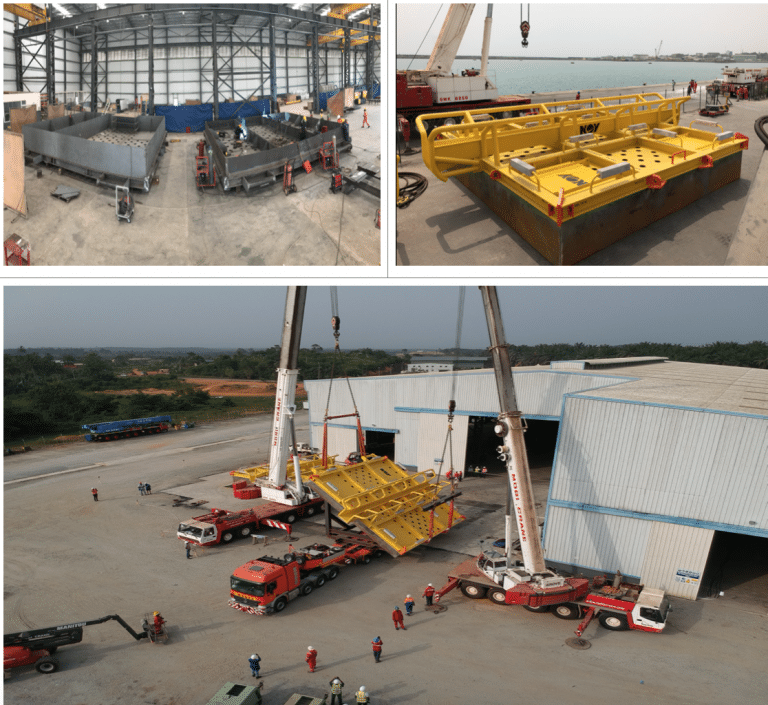
Mr D. Hesse-Tetteh explains, “Our first foray into the oil and gas services sector was about seven years ago. After completing a masters degree in Supply Chain and Logistics Management at the University of Warwick, UK, I returned to Ghana to spearhead the development of HT Marine Offshore Logistics Limited—a company focused on the provision of offshore vessel support services to the upstream oil and gas industry. The reason for divesting equity in CADS was to develop a diversified portfolio of businesses that we believed would aid the development of local capacity building and participation in Sub-Saharan Africa, particularly in the extractives industry.”
“We have combined our experience from running efficient family businesses, with the world-class structures of a successful decades-old engineering services company. Our aim with Harlequin as new indigenous owners is to set the benchmark for engineering in West Africa. Already, our investment in such a world-class facility has enabled us to take advantage of a lot of opportunities in Ghana,” says Mr D Hesse-Tetteh.
“Our services for the mining sector include the manufacture and repair of precision mechanical components, and the repair, assembly and testing of hydraulic cylinders, pumps and motors,” says Mr F Hesse-Tetteh.
“For the oil and gas sector we handle turnkey welding and fabrication of both topside and subsea equipment, including suction piles, manifolds, steel bend restrictors, holdback anchors, and mud mats. In addition to our welding and fabrication services to the upstream oil and gas industry, we provide offshore labour, hydraulic and pneumatic support services for high-pressure hydraulic/air systems, components such as cylinders, valves and pumps, and heat plate exchanger and riser maintenance services, amongst many others,” he adds.
On setting the benchmark for engineering in West Africa, Mr D Hesse-Tetteh says, “In order to do so, we are seeking partnerships and alliances that are beneficial, to enable us take advantage of opportunities not just in Ghana but in other African countries as well. As African industry players, we plan to offer our expertise in countries that may have the resources but lack the expertise, and track record to exploit them. We shall build the necessary infrastructure and introduce technologies that assist businesses exploit their resources economically. We invest heavily in training at Harlequin and ensure that young professionals are endowed with skills beneficial to our sector. Eventually, we want to help our country and other neighbouring countries gain self-sufficiency through local capacity building.”
Mr F Hesse-Tetteh adds, “We believe that there are still huge untapped opportunities in both the oil and gas and mining industries in Sub-Saharan Africa. In 2018, we visited Senegal with the aim of setting up an engineering facility in Dakar in the near future. Senegal and other West African nations are very much a part of our growth strategy going forward. We do not intend to set-up shop in these countries to compete with local businesses, but rather to partner with locals by offering services that complement what’s already present in-country. We are strong advocates of inclusive growth in Africa.”
The Push for Local Content and Compliance
As governments in Africa continue to review and intensify enforcement of local content and compliance in the oil, gas and mining sectors, it is vital for operators to similarly review their strategies for long-term operational stability in the region’s frontier markets.
“Through our acquisition of Harlequin Group, we have helped accelerate the respective abilities of the Petroleum Commission and the Minerals Commission in enforcing local content policies that support competent fully indigenous businesses like ours provide services to all stakeholders, with an adherence to international quality standards, and with a focus on speed, and value for money,” says Mr D Hesse-Tetteh.
“With the level of technical expertise Harlequin has gained in providing its service offerings over the years, we are in a good position to assist foreign partners successfully execute scopes, in a professional and compliant manner. We give foreign partners in the oil and gas and mining industries the comfort of having a local partner that is experienced enough to not only repeat the successful implementation of projects as executed in the past, but also experienced enough to quickly grasp and apply new processes and ideas shared by potential partners,” he adds.
“Over time, we have built very strong relationships with both international oil companies and the Petroleum Commission in Ghana. We understand the requirements of the industry, how to set up joint ventures (JVs) and remain compliant, strategies to gain significant market share, and how to maximise profitability. This is some of the value we bring to JVs and partnerships, beyond simply being a competent partner,” says Mr F Hesse-Tetteh.
One-Stop-Shop for Engineering Services
Harlequin Group is a one-stop-shop for everything engineering, and Mr F Hesse-Tetteh says, clients are usually surprised to learn that: “Under our facility, we have a 4,800 sqm fabrication facility, an 800 sqm engineering facility with computer numerically controlled (CNC) machining capacity, and an 800 sqm hydraulic service facility. It is very rare to find a company with all those capabilities under one roof in Ghana, or West Africa, for that matter.”
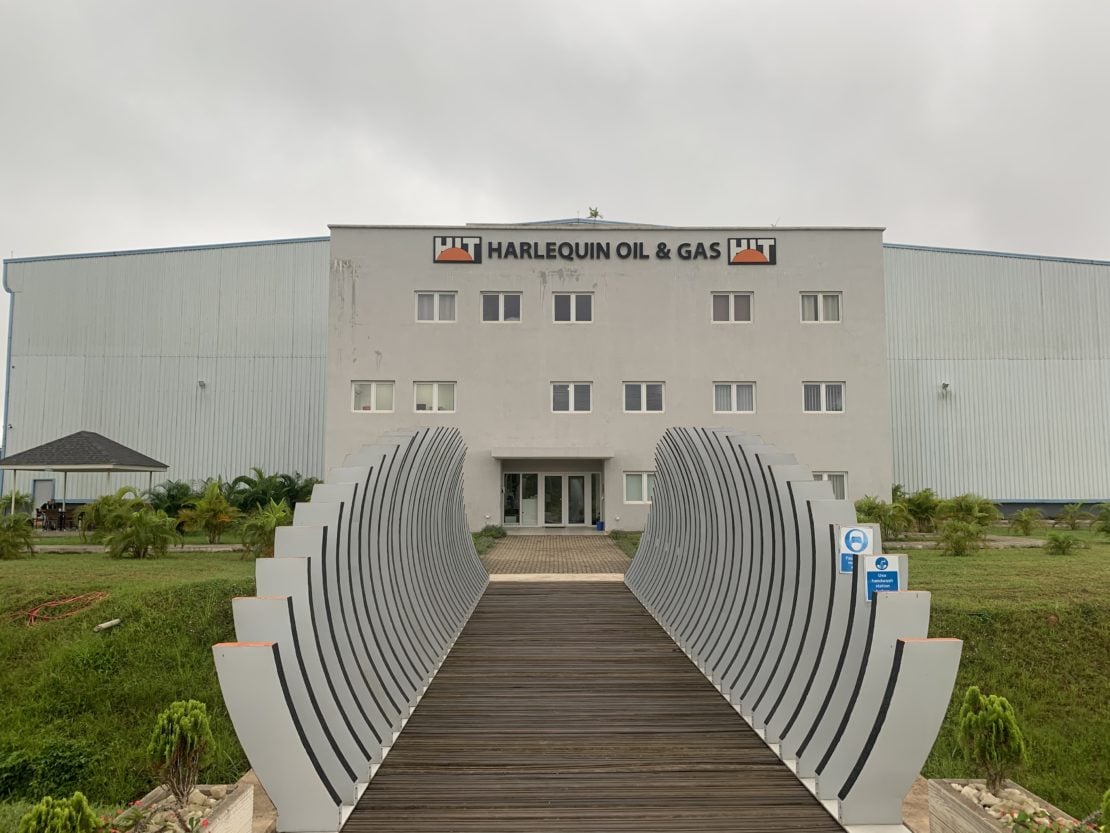
“It also comes as a surprise the number of Ghanaians we’ve trained over the last 20 years of being in business. We’re proud to say that over 90 per cent of our staff, across various competencies, from senior management to the shop floor, are Ghanaians. That is true local content in the sense that Ghanaians are able to both manage and execute the work,” he adds.
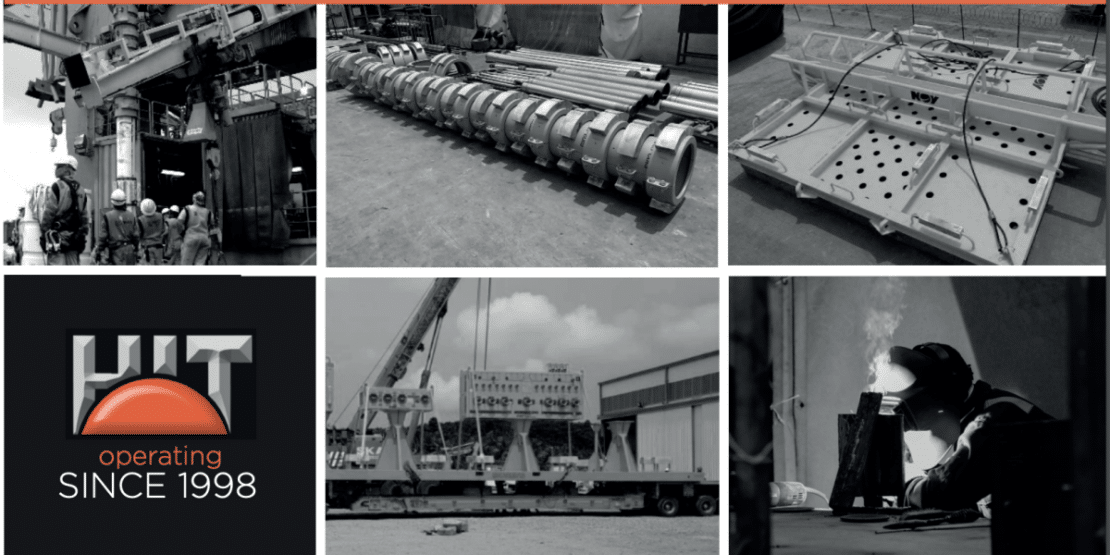
“Harlequin Group has been able to execute very complex scopes over the years. We are particularly proud of the reactions we get from showcasing some of the critical subsea equipment the company has locally fabricated in support of oil and gas development campaigns in the past,” says Mr D Hesse-Tetteh.
Case Studies
Given the local content requirements in Ghana, it is difficult for international oil and mining companies new to the market to achieve the same quality of services, at a competitive price. Harlequin Group has been able to serve as a guiding light. The company has excelled in lead time and quality of service and given international companies the opportunity to showcase their commitment to localisation.
- Onshore Pipeline and Pressure Control Station for Tema LNG
Harlequin is providing Engineering, Procurement and Construction (EPC) services to Tema LNG Terminal Company for the construction of a 6.5km pipeline from the lee side breakwater causeway at Tema Port to the Volta River Authority interconnection facility in Tema, Ghana. The project commenced in December 2018 and is expected to be completed by the first quarter of 2021.
- Subsea Structural Fabrication and Welding for ENI and Tullow Oil Ghana
From September 2017 to January 2018, Harlequin fabricated one each of Type 501 and 511 Mudmat Holdback Anchors for National Oilwell Varco (NOV) Flexibles (Denmark) for ENI with about 120 tonnes of steel. The year prior, Harlequin manufactured two subsea Production Manifold Structures including Piping Kits for FMC Technologies (approx. 70 tons of steel).
In 2016, Harlequin also manufactured two Suction Pile Tops including all Lower Skirt and Can Sections (subsea foundation for the Production Manifolds) for FMC Technologies (approx. 100 tons of steel) and manufactured 30 Steel Bend Restrictors (approx. 120 tons of steel) for NOV flexible pipes for West Atlantic Energy Ltd/NOV Flexibles (Denmark)—in a project that was completed four months ahead of the delivery schedule.
- Marine Riser and Telescopic Joints Support Services for Maersk
Harlequin provided support services to Maersk Drilling for the five-yearly inspection and overhaul of marine risers (for the Maersk Voyager Drilling Rig) and telescopic joints (for the Maersk Adventurer Drilling Rig).
The scope of work included dismantling, shot blasting, coating and installation support services to Maersk Drilling and GE Oil & Gas (OEM), who assisted with the inspection and repair services. A total of 48 marine risers and two telescopic joints were worked on. An additional scope included the inspection and repair of buoyancies for 48 risers. The project ran from June 2019 to January 2020.
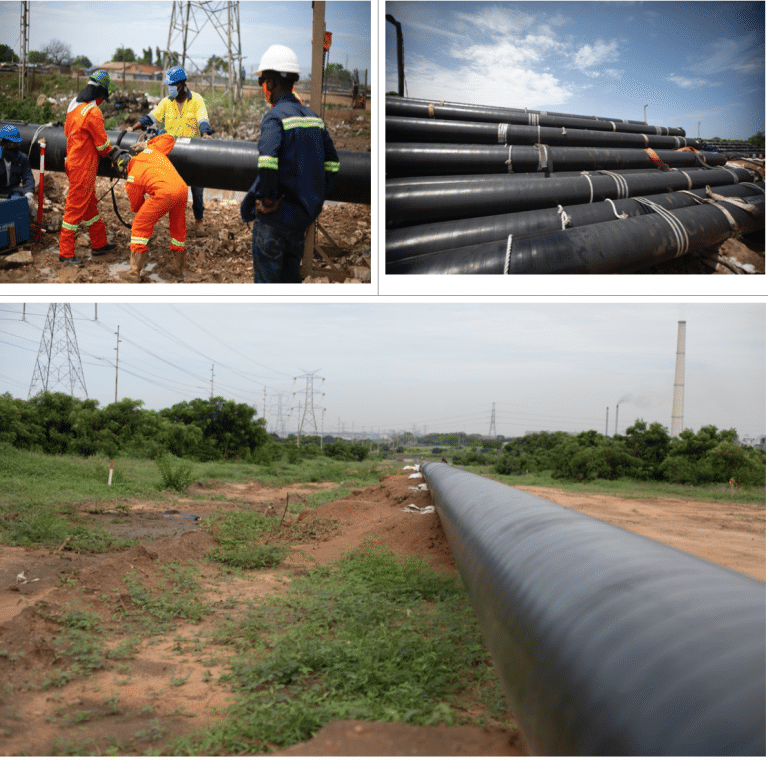
Ghana’s Development: “A Strong Local Environment Must Add Value to International Players”
Harlequin Group believes there is a need for the Ghanaian government to strike the right balance between local content policies, attracting foreign investment, and developing indigenous Ghanain companies.
“We have to build in-country capacity whilst offering value for money. Local content in the oil and gas industry tends to drive up project costs hence reducing the return on investment for foreign investors. As a nation, the last thing we want to do is to force foreign firms to risk quality, health and safety on projects by contracting local players that are below par. We must make it easier for multinationals to onboard local businesses, and this can be done through the development of existing local businesses; by providing businesses with cheaper access to finance as well as skills and leadership development programmes, local companies can quickly compete with their foreign competitors. A strong local environment must add value to international players instead of taking away from their potential profits,” says Mr F Hesse-Tetteh.
“It is also important that Ghana attracts foreign firms who are committed to spending significant time and resources in assisting local businesses grow and flourish. In order to achieve this, the government must put in place short, medium and long term incentives for foreign investors who are keen on stimulating job creation, technology and skills transfer through the industrial development of Ghana,” he adds.
Mr D Hesse-Tetteh also believes the government should, “Implement a strong local content policy that supports all industries, not just oil and gas and mining. These local content policies should include regulations that will enable banks to support local companies with funding for growth at competitive lending rates.”
The Road Ahead: “We anticipate more projects coming on stream in the region”
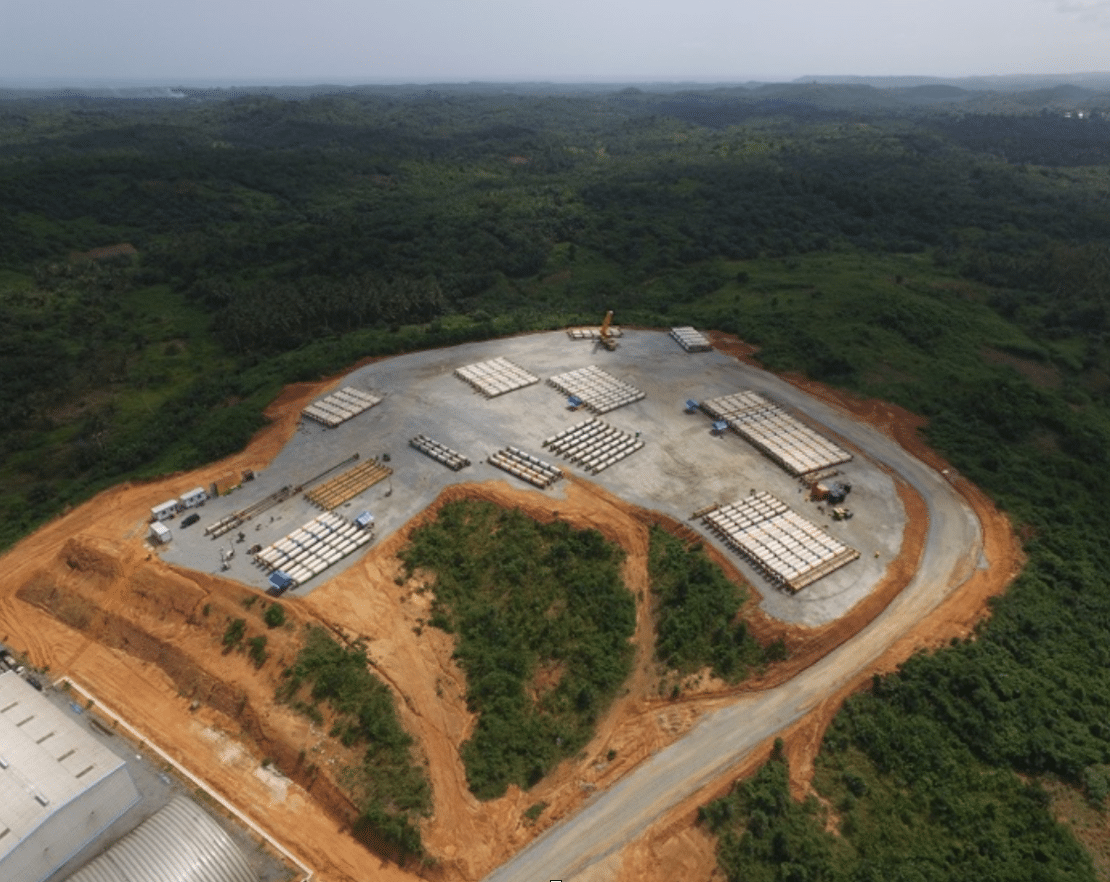
Harlequin Group’s business model emphasises innovation. “We look forward to creating new areas of expertise, not only through partnerships, but also through the setting up an internal research and development unit, that can spearhead our foray into new areas of service provision and general manufacturing,” says Mr D Hesse-Tetteh.
“We will anticipate where the market is going, what the future holds for markets in West Africa, and invest heavily in research and development, in terms of equipment and the training of our staff,” says Mr F Hesse-Tetteh.
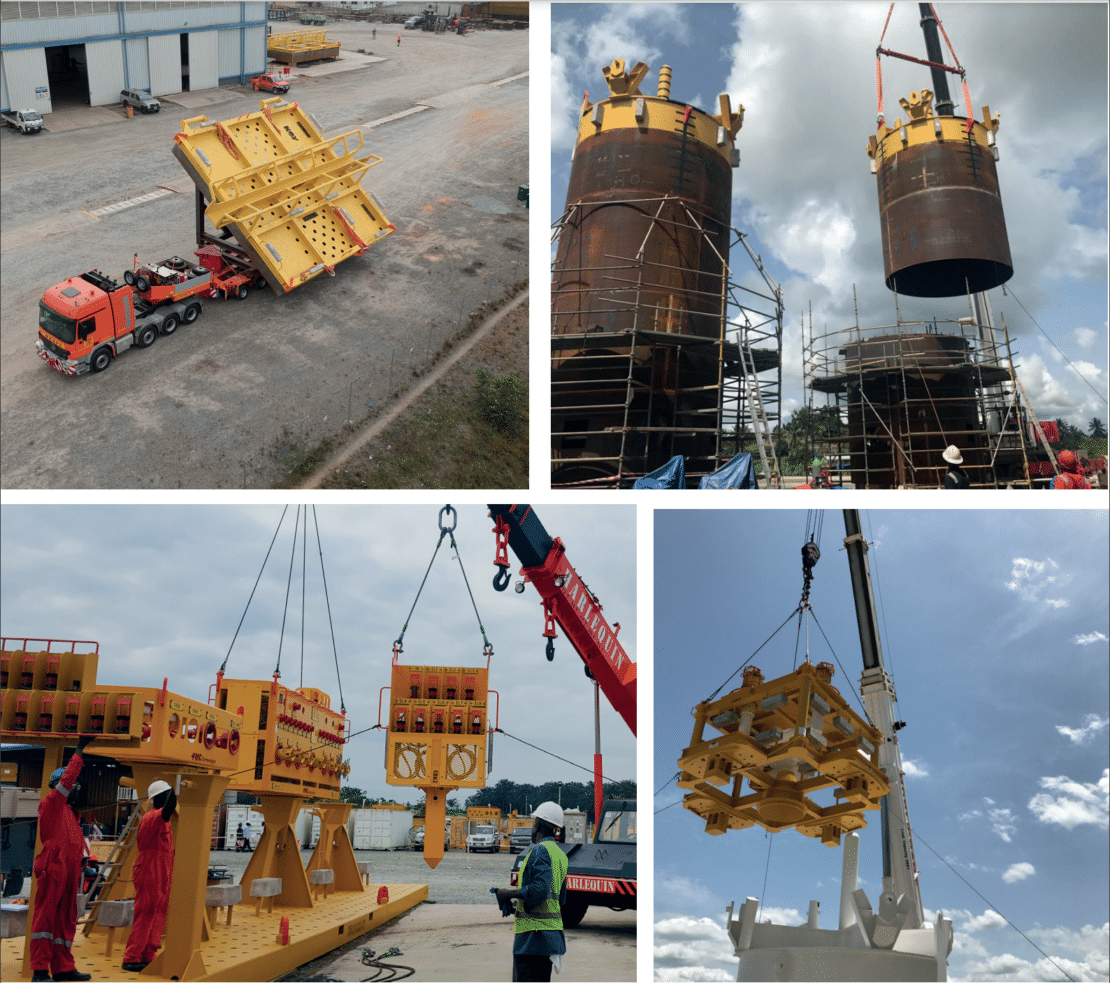
“We tend to focus primarily on training our team in new areas of fabrication and engineering, for example, renewables, in alignment with the global goals of attaining zero net emissions. Ghana is yet to develop its footprint in the renewable energy space. In order to get a competitive advantage, we are looking to form alliances with international companies in markets such as Europe and Asia, and have some of our staff train under them,” he adds.
By 2030, Harlequin expects that “We will be the West African oil and gas and mining service company of choice offering a unique array of services,” says Mr F Hesse-Tetteh.
He says, “We want to set the benchmark for engineering in West Africa. We believe we are on the right path. We have already achieved a number of our goals in terms of being able to offer a one-stop shop. We are further developing our services for repair and maintenance of low voltage motors and heat plate exchanges services. We anticipate more projects coming on stream in the region, particularly in Ghana’s Volta River Basin. We hope that the continent will adopt the same stringent local content policies required in Ghana’s upstream oil and gas space to give companies such as Harlequin the opportunity to grow.”
Mr D Hesse-Tetteh says, “In the next 10 years, we will have done a lot of work and gone from strength to strength in all our areas of expertise. We hope to have grown the company to employ many more Ghanaians. Our goal is to have had a significant impact on the general Ghanaian engineering and mining labour force by providing vast opportunities for the execution of challenging scopes in Ghana and beyond.”
Loading...
